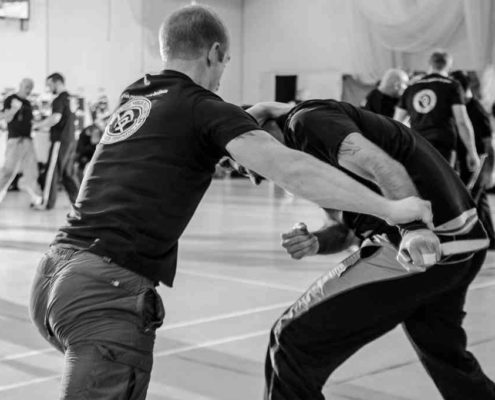Combat Psychology in Krav Maga: Enhancing Mental Resilience at Bristol Titans
At Bristol Titans Krav Maga, we believe self-defence is more than just physical technique—it’s also about mastering your mindset. Combat psychology plays a crucial role in training for real-life self-defence situations. Understanding how your mind and body react under pressure can significantly improve your performance when it counts most.
Whether you’re new to Krav Maga or a seasoned martial artist, building mental resilience for self-defence is essential. In this guide, we’ll explore the science of stress, its impact on your performance, and practical ways to train your brain for high-stress scenarios.
What Is Combat Psychology?
Combat psychology focuses on how mental and emotional processes influence physical performance in high-stakes situations. When under threat, our body triggers the fight-or-flight response, which is essential for survival but can sometimes impair our decision-making.
Explore our foundational guide: What is Krav Maga?
The Body Under Stress: How Your System Reacts
When you face a threat, your sympathetic nervous system kicks in, triggering physical changes:
- Increased heart rate and blood pressure to fuel your muscles
- Rapid breathing to supply oxygen quickly
- Adrenaline and cortisol flood your system, boosting energy and focus
- Muscle tension, pupil dilation, and reduced digestion redirect resources to survival functions
Understanding these changes helps you work with your body rather than against it.
Stress Impacts on Performance
While short-term stress can enhance focus and speed, long-term or unmanaged stress may lead to:
- Cognitive overload: Difficulty making quick decisions
- Emotional dysregulation: Panic or fear taking over
- Fatigue: Reduced strength and coordination
- Memory lapses: Forgetting techniques or training under pressure
Improve your stress management with our Principles of Krav Maga.
Training the Mind for Combat: Practical Strategies
1. Stress Inoculation Training (SIT)
Train your brain to function under pressure by introducing realistic stress into your workouts:
- Scenario-based drills to simulate street encounters
- Controlled sparring to develop calm under duress
Learn more in our Krav Maga lessons and try our self-defence classes in Bristol.
2. Tactical Breathing Techniques
Mastering your breath can help you regulate stress:
- Diaphragmatic breathing: Deep belly breaths to lower heart rate
- Box breathing: Inhale-hold-exhale-hold (4-count each) to reset focus
Combine with our Krav Maga workouts to maximise both mental and physical gains.
3. Mental Visualization
Visualisation techniques build confidence and preparedness:
- Picture yourself successfully responding to an attack
- Rehearse different scenarios and outcomes in your mind
4. Build Physical and Mental Fitness Together
Fitness enhances your stress resilience. Pair your training with:
5. Mindfulness and Relaxation Techniques
Use mindfulness to stay grounded:
- Daily meditation or progressive muscle relaxation
- Focused awareness drills to improve clarity under pressure
6. Decision-Making Under Pressure
Train fast, effective decision-making with:
- Role-playing and response drills
- Time-limited scenarios with multiple threats
Need tips for families? Our Kids Krav Maga classes help build decision-making skills from a young age.
7. Embrace Mistakes as Growth Opportunities
Every mistake is a lesson. Use it to refine your training:
- Reflect post-training
- Seek instructor feedback
8. Prepare for the Unexpected
- Define your personal “GO” button: What triggers your action?
- Practice preemptive striking if a threat is imminent
Explore combat grappling techniques for handling close-range threats.
Want to Learn More?
Check out our Krav Maga Bristol FAQ to dive deeper into our training philosophy and practical applications. For reviews from our community, visit our student testimonials.
You can also explore intense training like:
Final Thoughts
Combat psychology isn’t just for elite fighters. It’s for anyone who wants to feel confident and capable in any situation. At Bristol Titans Krav Maga, we combine mindset, movement, and muscle to prepare you for whatever life throws your way.
Explore more on our homepage or dive into our resources section for ongoing learning.
Whether you’re walking home late at night or training for your next sparring match, mental conditioning could be the edge that keeps you safe.
Recommended Reading:
- “The Gift of Fear” – Gavin de Becker
- “The Psychology of Self-Defense” – Dr. Stephen L. Johnson
- “Why Zebras Don’t Get Ulcers” – Robert Sapolsky
